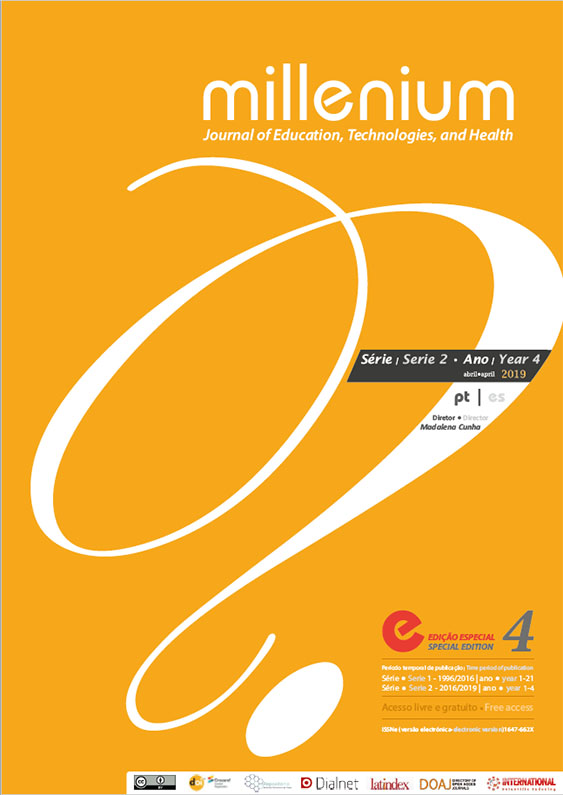Un estudio comparativo, entre China y Portugal, de la formación profesional del máster de traducción
DOI:
https://doi.org/10.29352/mill024e.18041Palabras clave:
Máster en Traducción, Formación Profesional, China, Portugal, Mercado de trabajoResumen
Introducción: Con la globalización, la interdependencia de competencias y de dominios se ha profundizado en todo el mundo. La formación de traductores competentes es cada vez más importante. En 2007, la Comisión de Grado Académico de China comenzó la implementación piloto del MTI (Master’s in Translation and Interpreting), hasta ahora más de doscientas universidades ya recibieron la calificación para iniciar este curso. A diferencia de los másteres académicos, el MTI es un máster profesional, cuyo objetivo consiste en la formación de traductores competentes para que, después de la formación, sean capaces de adaptarse rápidamente a las exigencias del mercado laboral.
Objetivos: Debido al inicio tardío ya la poca experiencia en esta área, a pesar de un crecimiento muy rápido de la cantidad de universidades con MTI, los traductores formados en este máster no tienen las competencias compatibles con las exigencias del mercado. Por ahora, el nivel de formación de los MTI en China todavía se encuentra a una distancia nada menos dos modelos maduros existentes en el extranjero; como resultado, se nos ocurrió la idea de realizar un análisis comparativo de máster de traducción entre China y Portugal. Según Nord (2006), además de la competencia de traducción, existen aún la competencia lingüística, la cultural, la profesional y la técnica; en la formación, el foco debe incidir más en la de traducción, en la profesional y en la técnica. Por otra parte, Nord creó el modelo de análisis textual, enfatizando la importancia del análisis y de la decisión de los factores internos y externos a los textos y, con ello, ofreció las sugerencias sobre los pasos en la formación de traductores, aclarando el carácter intercultural de la traducción y los papeles de los traductores.
Métodos: Basado en el modelo teórico de Nord (2006) para la formación de traductores, tenemos la intención de realizar un estudio comparativo de los másteres de traducción entre China con Portugal, en particular, iremos a discutir los objetivos e los planos curriculares de los másteres entre ambos los países, analizando las diferencias y semejanzas en lo que se refiere a la formación de los futuros profesionales.
Resultados: En este trabajo se comparan los planes de estudio de los ciclos de tres grados de las universidades chinas y una portuguesa, en particular en lo relativo a las habilidades de traducción, lingüísticas, culturales, profesionales y teóricas.
Conclusiones: Esperamos que esta investigación pueda servir como incentivo para la formulación de nuevas políticas en la enseñanza del MTI, contribuyendo al aumento de la enseñanza práctica y especializada en alumnos que desean la profesión de traductor.
Descargas
Citas
ISO (International Organization for Standardization). (2015). ISO 17100: 2015 Translation services –requirements for translation services.
iu, D. & Ren, H. (2011). Reflections on MTI teaching. The Translation of China, (5), 47-49.
Mu, L. (2011) Discussion on the mode of the theses of MTI. Foreign Language Teaching Theory and Practice, V1 (1), 77-82.
Nord, C. (2001) Translating as a purposeful activity: Functionalist approaches explained. Shanghai: Foreign Language Education Press.
Nord, C. (2006) Text analysis in translation: Theory, methodology, and didactic application of model for translation-oriented text analysis (2nd Edition). Beijing: Foreign Language Teaching and Research Press.
Descargas
Publicado
Cómo citar
Número
Sección
Licencia
Derechos de autor 2019 Millenium - Journal of Education, Technologies, and Health

Esta obra está bajo una licencia internacional Creative Commons Atribución 4.0.
Los autores que sometan propuestas para esta revista estarán de acuerdo con los siguientes términos:
a) Los artículos serán publicados según la licencia Licença Creative Commons (CC BY 4.0), conforme el régimen open-access, sin cualquier coste para el autor o para el lector.
b) Los autores conservan los derechos de autor y conceden a la revista el derecho de la primera publicación, se permite la divulgación libre del trabajo, desde que sea correctamente atribuida la autoría y la publicación inicial en esta revista.
c) Los autores están autorización para firmar contratos adicionales separadamente, para la distribución no exclusiva de la versión del trabajo publicada en esta revista (ej.: publicar en un repositorio institucional o como capítulo de un libro), con reconocimiento de la autoría y publicación inicial e esta revista.
d) Los autores tienen permiso y son alentados a publicar y distribuir su trabajo on-line (ej.: en repositorios instituciones o en su página personal) ya que eso podrá generar alteraciones productivas, así como aumentar el impacto y la citación del trabajo publicado.
Documentos necesarios para la sumisión
Plantilla del artículo (formato editable)





